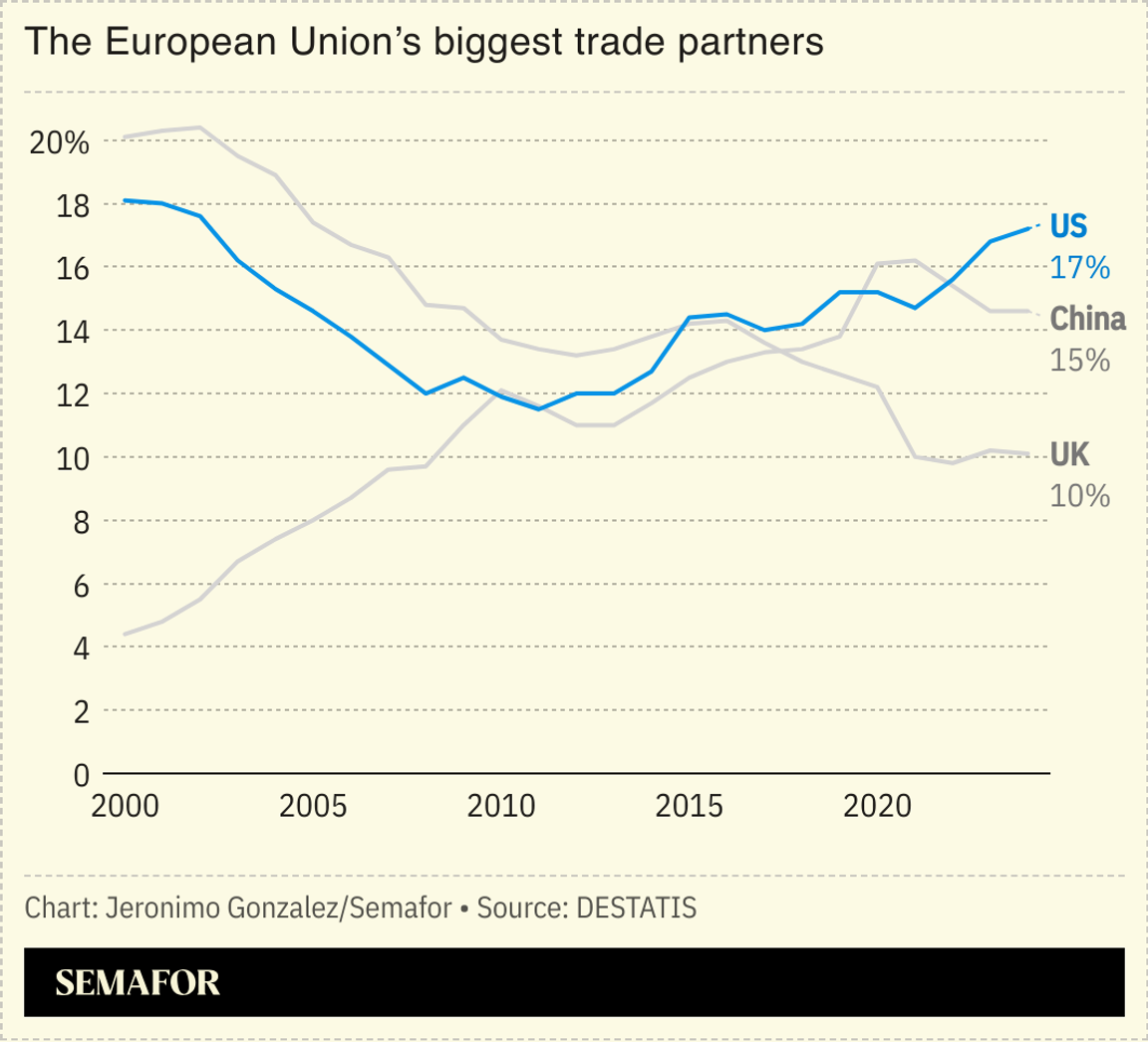 Global powers scaled down their ambitions for trade deals with Washington, barely a week before President Donald Trump’s tariff reprieve expires. The European Union looks likely to accept a universal 10% import tariff, but wants exemptions on major exports including alcohol, cars, and pharmaceuticals, according to Bloomberg. Meanwhile, India is expected to sign an interim trade deal with the US in order to protect the South Asian nation’s politically sensitive agricultural exports, the Financial Times reported. The White House itself is backing off its initial promises to reshape the global trading system, and is instead settling for a “narrower, piecemeal plan,” the FT said, before a 90-day suspension of Trump’s “Liberation Day” duties expires. |